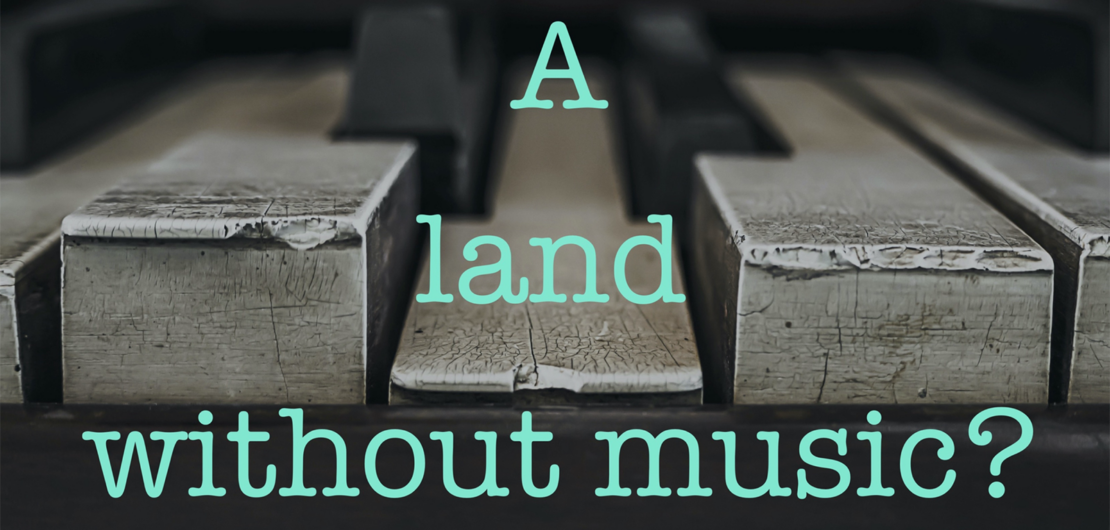
Here’s a New Year’s Resolution for you! Check out Sound World’s brilliant podcast series called A Land Without Music?
If like me, you love classical music and believe that it provides a force for good but are concerned that it is facing a perfect storm that threatens its very existence, then this is essential listening.
The podcast series is written and presented by Julian Leeks, the Director of Sound World and includes contributions from Sally Beamish, Jess Gillam, Dame Evelyn Glennie, Sadie Harrison, Daniel Kidane, Kadiatu Kanneh-Mason, Nico Muhly, John Pickard, Jörg Widmann and others.
For me, it’s like being a fly on the wall of a dream dinner party with really interesting guests who are prepared to speak their minds. Julian Leeks is an assured and amiable anchor with lots of insightful questions, witty interjections and well written links.
So far, there have been five podcasts in the series:
- How we value music
- Discovering music
- The Jess Gillam Interview
- Music in Education Part 1: What Children gain from music
- The Kadiatu Kanneh-Mason Interview
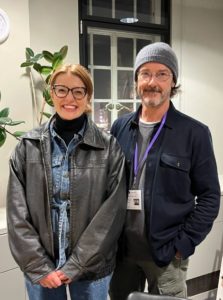
Julian Leeks, the writer and presenter of the A Land Without Music podcast with saxophonist and presenter Jess Gillam.
The first, second and fourth podcasts include a mix of contributors whilst the two others are longer, bonus episodes that include the full interviews with Jess Gillam and Kadiatu Kanneh-Mason.
The production values are excellent. This is the sort of programme that could and should be on BBC Radio 3. In fact, the BBC did do a series back in the spring of 2024 with almost exactly the same title[1]. However, that lacked the same oomph as the Sound World podcast. The BBC broadcasts were longer (an hour long) and the clips of guests talking were separated by extensive chunks of English pastoral music. It seemed an odd choice – allowing the listener’s mind to wander and lose interest, thereby undermining the importance of the narrative.
By contrast, the A Land Without Music? podcast series is concise, incisive and never loses momentum.
The individual episodes deal with some of the huge issues facing classical music such as
- Audience, organisational and political ambivalence and in some cases hostility
- Chronic under funding and the constant need to demonstrate utility – i.e. how classical music benefits the UKs GDP
- The lack of exposure to this art form, except for the privileged few (such as the availability of free instruments and instruction, music education in schools, and opportunities for playing and listening)
- Being a punch bag from all angles with the paradoxical criticisms of being too elitist[2] whilst efforts to increase inclusivity are frequently denounced as dumbing down. It’s no wonder that classical music has an identity crisis.
The subject matter is serious and thought-provoking but there is no wallowing in self-pity. Leeks keeps the tone objective and there are many light hearted moments. I particularly like the excepts featuring John Pickard who provides some of the pithiest statements. I could listen to him talk all night.
Here are a few highlights from the first three episodes:
- Jess Gillam’s idea for a cultural blackout day when the airwaves go silent as an experiment to get people to understand the intrinsic value of music.
- John Pickard’s argument that the previous Conservative government had “an active project to destroy classical music by thriving on dissent and placing people at loggerheads with each other”. This is followed up by a witty statement from Leeks “I can’t help wondering if John is crediting Nadine Dories with too great a capacity for joined up thinking”.
- Jörg Widman talking about his young life saving up pocket money to see Miles Davis and Pierre Boulez and how after the latter experience, he said “the next morning you could not continue the same way”[3]
- Sally Beamish reminiscing about her musical family and how she was taught to learn to read and write music before she could read or write words.
- Jess Gillam explaining how after a school service performance a child told her that her music playing was “better than Alexa”
- John Pickard’s memories of the public library and the dedicated music librarian in Burnley and how this helped “transform an introverted child to social life conducted through music”. I was also captivated by the aside that this library, back in the 1970s allowed people to borrow paintings like borrowing a book to hang on the wall for a month. Pickard said, and I agree, that this was “absolutely remarkable”.
- Jörg Widman saying that he won an award in Germany but as part of the ceremony his own music wasn’t played. This excerpt was followed by Leeks stating that the “Media treat more challenging music in the manner of an unexploded bomb – keeping it as far away as possible from populated areas”.
Throughout, many of the contributors explain how in hindsight they realise just how lucky they were, how despite not being from wealthy backgrounds that in their upbringing they had opportunities that at the time they took for granted. Gillam, who is one of the youngest interviewees talks of a community carnival that was incredibly formative but is no longer funded partly as a result of Arts Council cuts but also because the individual who had started the initiative has now retired.
At the end of episode 2 Leeks says that if we only rely on individuals with drive and determination to make a difference at the grassroots level then “We make access to music a lottery and one with pretty long odds”. He draws the discussion to a close by summing up the past experiences of his guests:
Their privilege was of a quite different kind – the privilege of opportunity. The opportunity to discover something new, to nurture one’s love and appreciation of something profound and meaningful and to develop the potential of natural talent. Crucially, it was opportunity that was indifferent to the financial or social status of people’s families. It was there for everyone.
In a similarly well-rounded conclusion to the first podcast Dame Evelyn Glennie appeals to politicians to make a difference:
We need a Government that absolutely believes in the power of music making. They need to see that music is a form of medicine. That it is a part of our everyday lives and how much we could be saving on so many aspects of our society if we had this complete devotion to the importance of music. And that’s right across the board, that’s as soon as the baby is in the womb to our last breath. Literally the whole demographic of society. Not just concentrating on schools. Not just concentrating on bringing music out when there’s a crisis. It needs to be part of our everyday living.
I hope I have whetted your appetite. I cannot recommend this podcast series more highly. Please listen and tell your friends to do the same.
Search for A Land Without Music? on your usual podcast provider or click below.


Footnotes
[1] The BBC Radio 3 programme The Land Without Music was part of the Music Matters schedule. I find it puzzling that such a supposed wake-up call is no longer available to listen again? This does seem to be part of the problem – that the BBC, more frequently these days seems to be a bit scared of its own shadow and trying hard to avoid causing offence. That said, I continue to owe a great deal of my musical education to the Beeb (see footnote 3 below).
[2] In the second episode of A Land Without Music, Sadie Harrison mentions an article that she read called The love that dare not speak its name by Professor Alexandra Wilson of Oxford Brooks University. This talks about how classical music used to be embedded in UK culture with operas on mainstream TV 18 or more times a year but these days the art form seems to be cloaked with the pernicious sense of “elitism”. It’s a good read.
[3] On the subject of Pierre Boulez – the BBC Symphony Orchestra are running a Total Immersion Sunday on the man and his music at the Barbican on the 30th of March 2025. I know much more about the man than I do the music, so I’ll definitely be going with the aim of adding a building block or two to my mainframe. The last Total Immersion event I went to was on Missy Mazzoli which really left an impression. Fingers crossed this one will have the same effect on me as Boulez’s music did on the young Jörg Widman!

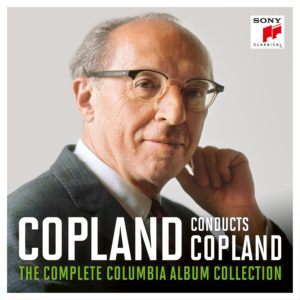
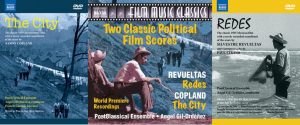
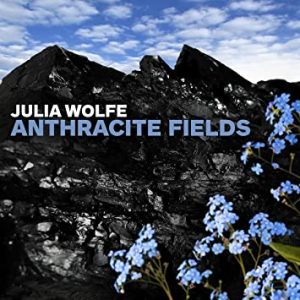





Leave a Comment